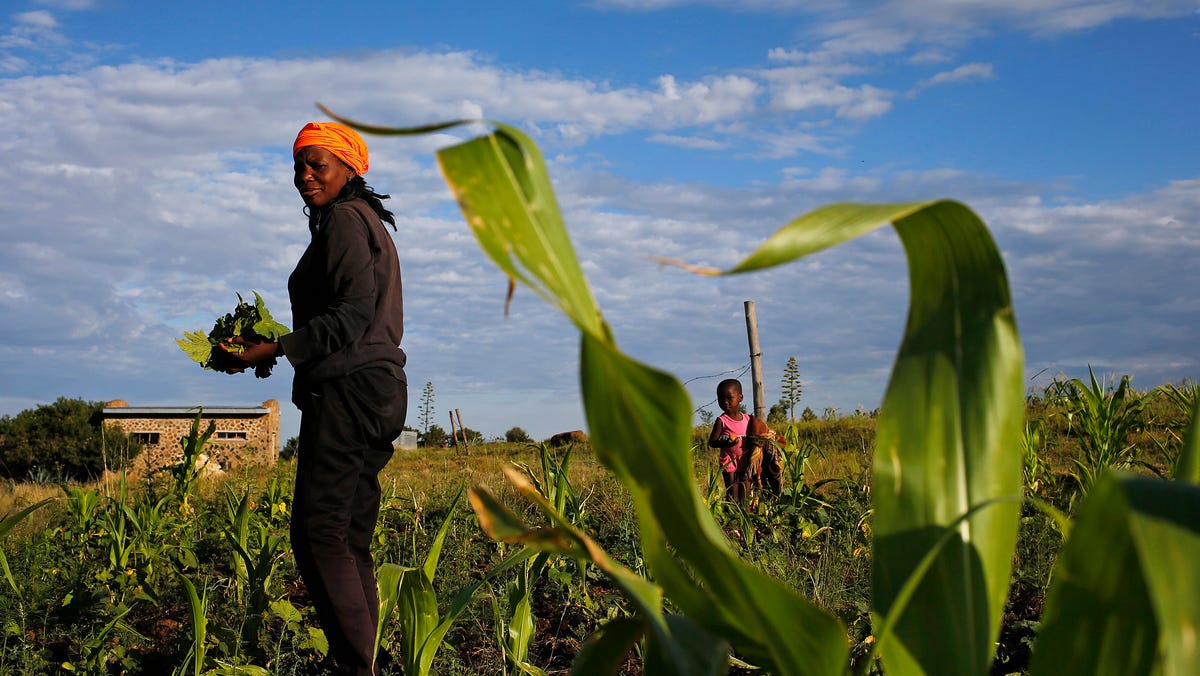Lesotho Economy: Navigating the 50% US Tariff Fallout
The Lesotho economy, heavily reliant on textile exports to the United States, is facing a significant challenge following the imposition of a 50% tariff on certain apparel items. This unexpected blow has sent shockwaves through the nation's already fragile economic landscape, prompting urgent calls for diversification and strategic adaptation. This article delves into the impact of this tariff, exploring its consequences and potential solutions for Lesotho's economic recovery.
The Impact of the 50% US Tariff
The 50% tariff represents a substantial hurdle for Lesotho's textile industry, which employs a significant portion of the workforce. The immediate consequences are stark:
- Reduced Export Revenue: The higher tariff makes Lesotho's textiles less competitive in the US market, leading to a dramatic decrease in export volume and revenue. This directly impacts factory owners, workers, and the overall GDP.
- Job Losses: With reduced demand, textile factories are forced to cut production, leading to potential job losses and increased unemployment, exacerbating existing social and economic inequalities.
- Supply Chain Disruptions: The ripple effect extends beyond the factories themselves, impacting related industries such as cotton farming, transportation, and logistics. This creates wider economic instability.
- Increased Poverty: Many Lesotho citizens rely on the textile industry for their livelihoods. Job losses and reduced income directly contribute to increased poverty and food insecurity.
Analyzing the Vulnerability of the Lesotho Economy
Lesotho's economic structure, heavily dependent on a single export market (the US) and a limited product range (textiles), exposes its inherent vulnerability to external shocks like this tariff. This over-reliance highlights the urgent need for:
- Economic Diversification: Reducing dependence on the US textile market by exploring alternative export destinations and industries is paramount. This requires investment in other sectors and the development of new skills within the workforce.
- Trade Negotiation and Diplomacy: Active engagement in international trade negotiations is crucial to securing favorable trade agreements and mitigating the impact of future tariffs or trade barriers.
- Strengthening Regional Trade: Exploring opportunities within the Southern African Development Community (SADC) and other regional trade blocs can provide alternative markets and reduce reliance on a single trading partner.
- Investment in Infrastructure: Improving infrastructure – from roads and transportation networks to communication technologies – is essential to supporting economic diversification and attracting foreign investment.
Potential Solutions and Future Outlook
The Lesotho government, in collaboration with international organizations and development partners, must implement comprehensive strategies to address the fallout from the 50% US tariff. This includes:
- Skills Development Programs: Investing in education and training programs to equip the workforce with skills needed for emerging industries.
- Support for Small and Medium Enterprises (SMEs): Providing financial and technical assistance to SMEs to foster innovation and diversification within the economy.
- Attracting Foreign Direct Investment (FDI): Creating an attractive investment climate to encourage FDI in diverse sectors beyond textiles.
- Sustainable Development Initiatives: Promoting sustainable agriculture, tourism, and renewable energy to create new economic opportunities.
The 50% US tariff presents a significant challenge for Lesotho, but it also provides an opportunity for transformative change. By embracing diversification, strengthening regional partnerships, and investing in human capital, Lesotho can build a more resilient and sustainable economy for the future. The road to recovery will require concerted effort and a long-term vision, but with strategic planning and international support, Lesotho can navigate this difficult period and emerge stronger.
Keywords: Lesotho economy, US tariff, textile industry, economic diversification, trade negotiations, job losses, poverty, SADC, FDI, sustainable development, economic recovery, Lesotho apparel, African economy
Related Articles: (Internal links to relevant articles on your site, if applicable)
External Links: (Links to reputable sources such as World Bank reports, IMF data, etc. relating to the Lesotho economy.)
